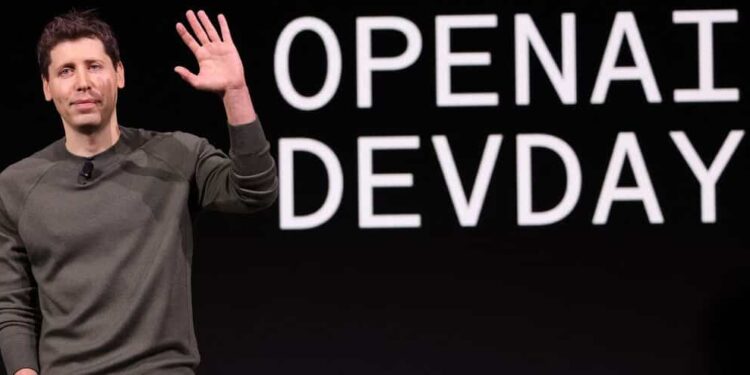OpenAI announced on the night of Tuesday to Wednesday the return to the helm of its co-founder Sam Altman, a few days after his dismissal from the start-up creating ChatGPT.
• Read also: Microsoft announces hiring former OpenAI boss Sam Altman
• Read also: Dismay at OpenAI: ChatGPT creator fired
“We have reached an agreement in principle for Sam to return to OpenAI as CEO” with changes in the board of directors, notably headed by Bret Taylor and the arrival of Larry Summers and Adam D’Angelo, explained the company in a message posted just after 10 p.m. Tuesday evening in California, or 7 a.m. Wednesday in Paris (6 a.m. GMT).
“We are working on the details. Thank you for your patience during this time,” added the start-up in this message.
- Listen to Francis Gosselin’s economic column with Mario Dumont via QUB radio:
Sam Altman, whom Microsoft announced on Monday to hire, three days after his dismissal from OpenAI, for his part immediately affirmed that he had the support of Satya Nadella, the boss of Microsoft, to return to the head of OpenAI.
“With the new board of directors and Satya’s support, I look forward to returning to OpenAI and building a strong partnership” with Microsoft, the Silicon Valley star wrote on X (ex Twitter).
On Monday, former Twitch boss Emmett Shear even announced that he had accepted the position of interim number 1 at OpenAI.
According to a letter published by several American media, nearly 700 of OpenAI’s 770 employees threatened to resign if Sam Altman, 38, did not return.
The release of the first version of ChatGPT on November 30, 2022 kicked off a race for so-called generative artificial intelligence, that is to say capable of creating content (text, images, sounds ) on request in everyday language.
Generative AI is seen as capable of transforming entire sectors of the economy. It arouses enthusiasm, but also strong concerns about its possible danger for democracy (massive disinformation) or employment (replaced professions), in particular.



